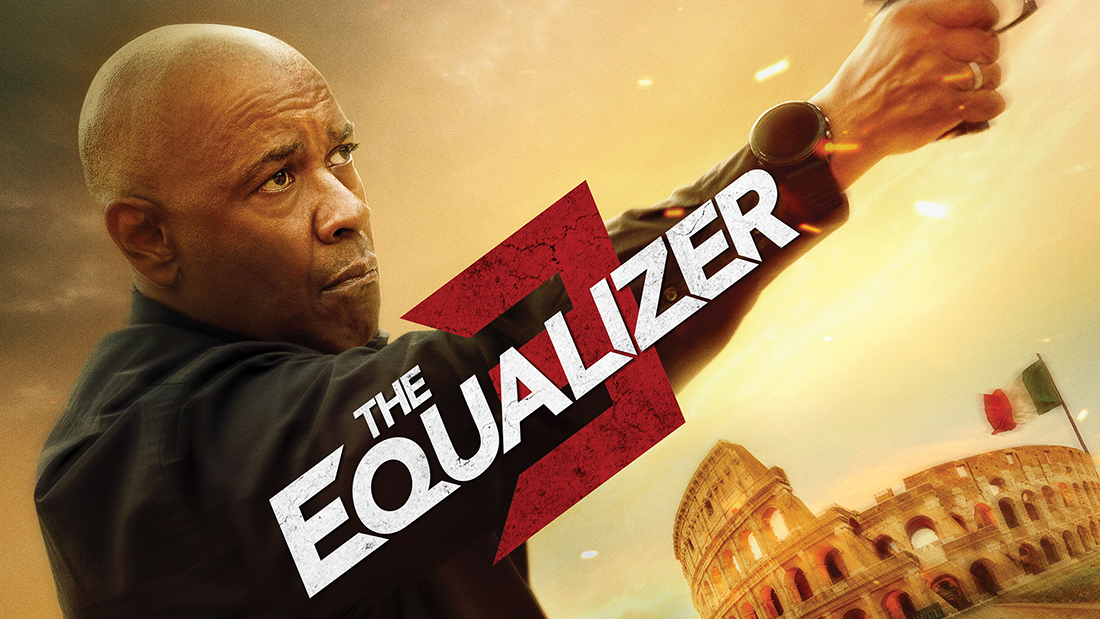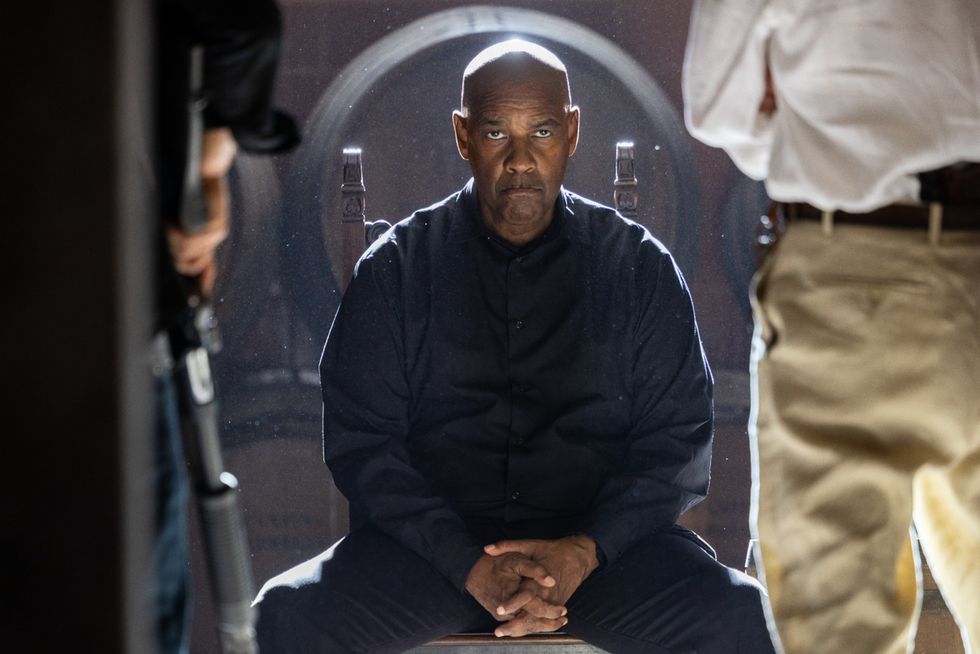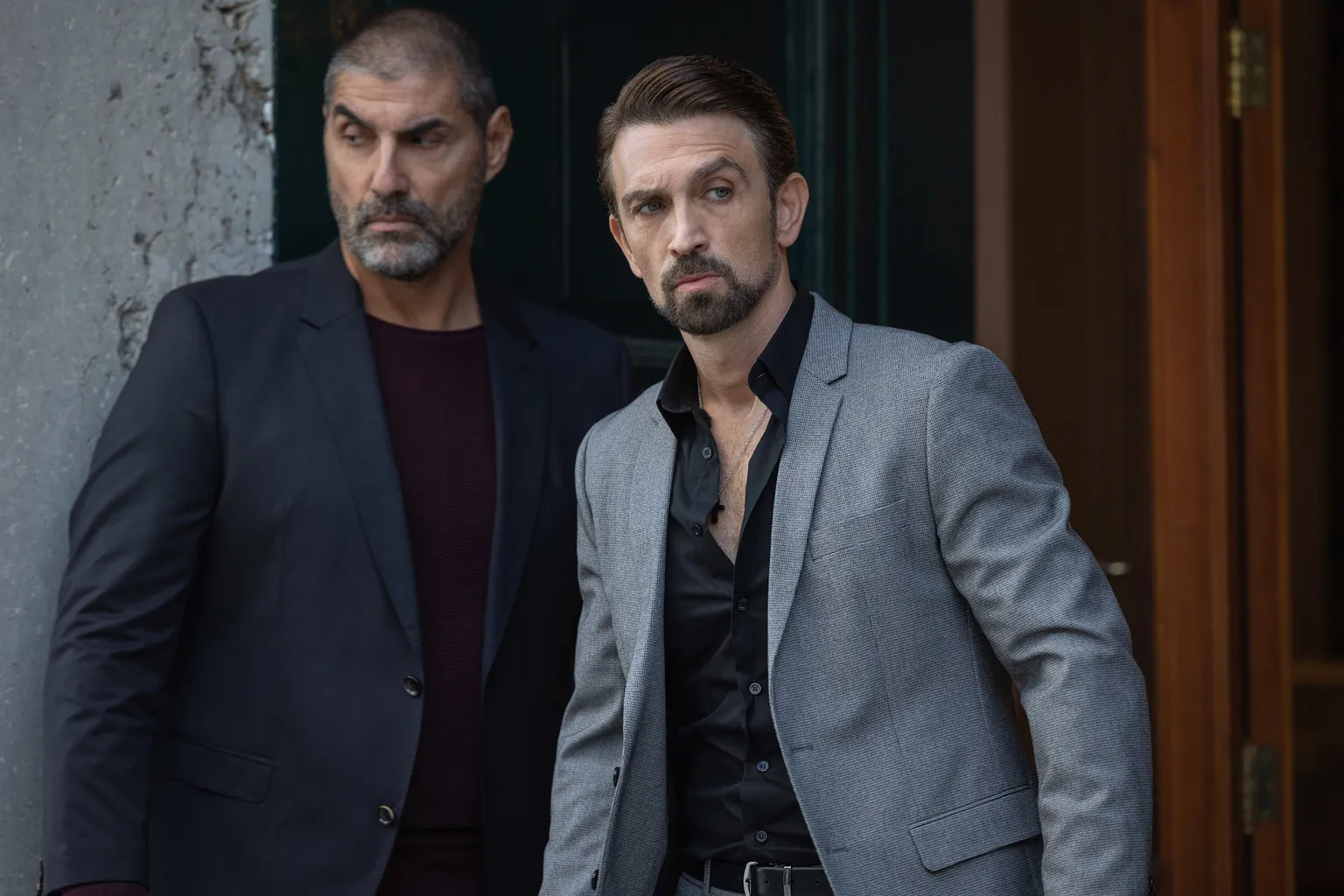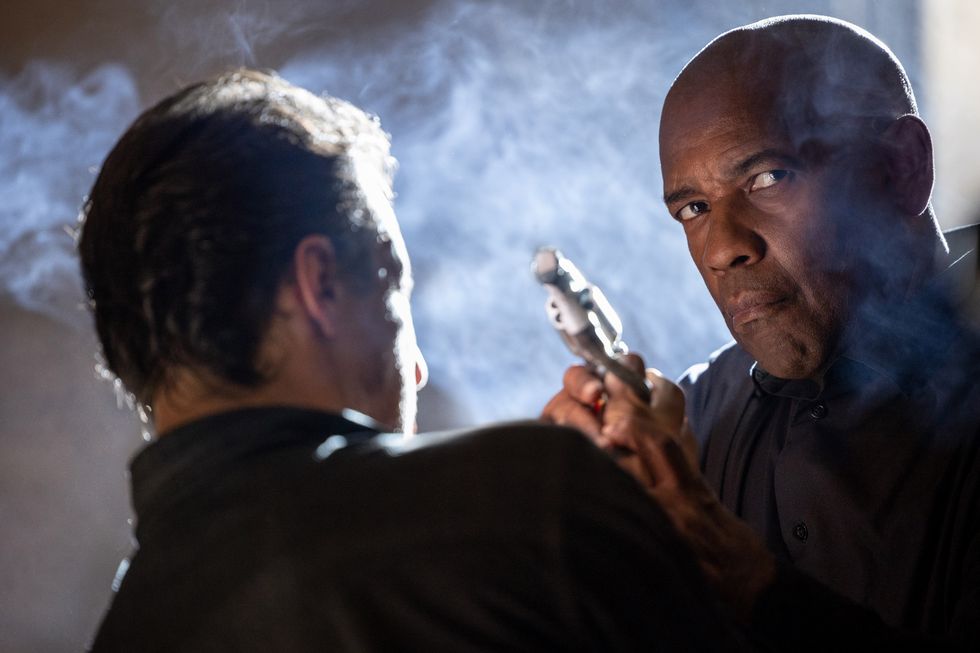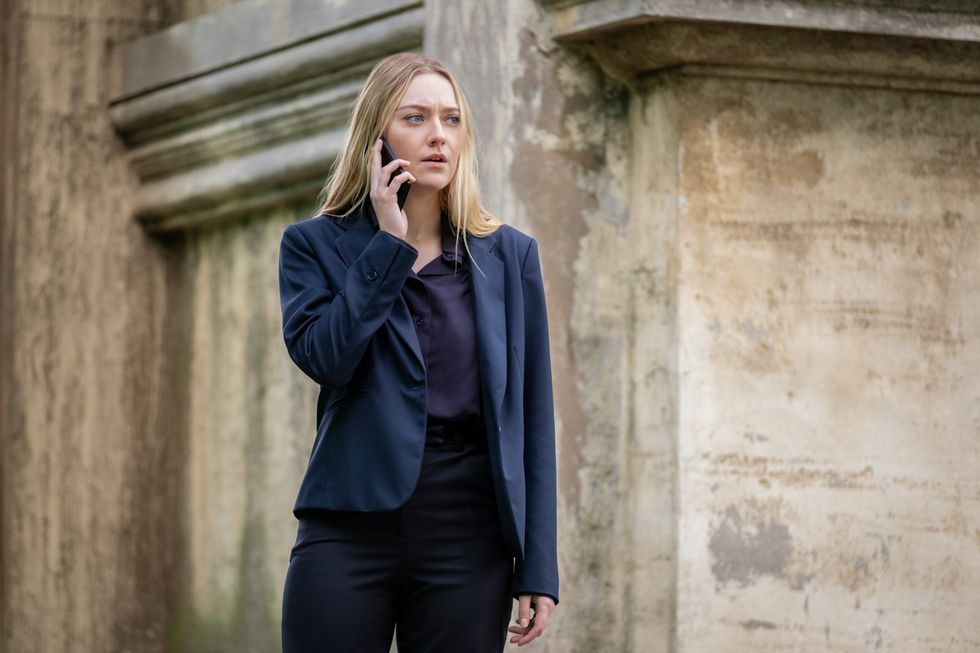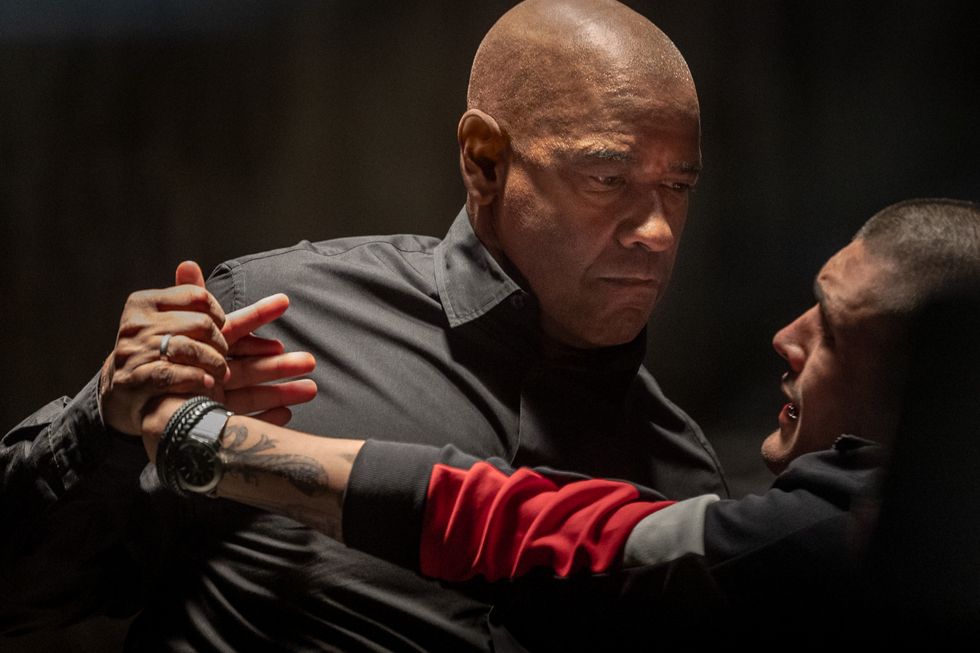BY HARLAN CHAPMAN-GREEN
It’s been some time since I’ve done a movie review, six months, in fact. That’s not through lack of trying, I did live through the whole Barbenheimer craze just like you did, dear reader. In fact, I saw one of those two movies that sent everyone into a frenzy a few months ago, I’ll bet you can’t guess which one. That’s right, I saw Barbie. I could parse it out and say my dear mother and her friends dragged me, a grown man, to the cinema to see it, but I doubt you’d believe that. You want my thoughts on it? It wasn’t great, maybe 3/10, it seemed like some more extreme views of “inclusivity” which actually aren’t inclusive at all. Anyway.
From this point on expect multi-movie plot spoilers and personal opinions.
A set of modern films I really love are The Equalizer movies starring Denzel Washington (Training Day, Man on Fire). The films are based on a TV series from the 80s of the same name and follow Robert McCall, a retired US Marine/DIA (Defence Intelligence Agency) operative from Boston, Massachusetts, as he slowly but violently rights the wrongs of our world. The first film, from 2014, is an absolute standout action movie, but its format differs from the norm.
Traditional action movies have big beefy blokes and hard-arse women running around beating the crap out of endless waves of baddies and tossing out one-liners as one does when having an argument in their head. The Equalizer differed from these, offering up a quiet story about a retired man trying to find peace in this world. A retired man who just so happened to know how to kill a room full of people in the most gruesome ways possible in under 30 seconds. Anything and everything is a weapon for McCall, bottles, corkscrews, nail guns, anything, and it builds to one hell of a showdown at the end.
I don’t remember much of the second movie, it’s been a while since I saw it, but I do remember saying to myself it wasn’t as good as the first one, although as the bar was set very high, The Equalizer 2 was still a great film in the grand scheme of things. So where does that leave us with this one? Is this The Equalizer 3 the traditional Hollywood ‘difficult third act’? Well, no, it’s not. It’s pretty much everything I’d hoped for.
The film starts in Sicily, Italy, and in fact, is nearly solely based in Italy with a few shots and some final scenes in the USA. We follow a man, gang enforcer Lorenzo Vitale (Bruno Bilotta (Rome, Spider-Man: Far from Home)) and his young son(?) driving in their Land Rover Defender through some gorgeous Italian scenery and back to their home which, judging by the bodies and general carnage lying around, appears to have been ransacked. The camera follows Lorenzo and one terrified bodyguard through the house which has been turned into a warzone. For those familiar with the way Equalizer movies work, it was clear the man we’ve been introduced to has been up to no good, and when the camera shows McCall being held at gunpoint in the wine cellar it’s clear what’s about to happen.
In true fashion, our now-confirmed ‘baddie’ Lorenzo is given a choice to do the right thing or face the consequences. Naturally, indecision kicks in and a moment later McCall springs to life, keeping his promise and effortlessly taking down at least three armed men despite being sat on a chair at gunpoint a moment earlier. Yeah, the action scenes in Equalizer movies aren’t drawn-out gun battles using seemingly endless amounts of ammunition, they’re very tight and over in a flash leaving you almost in awe of what just happened. It also gives a sense of realism, when I was training in Taekwondo in set sparring I was trying to do short quick things that might theoretically catch someone off guard. Can’t say I was good, but the thought was there.
Anyway, it was nice to see some action within the first ten minutes of The Equalizer 3. At this point, we’re all familiar with McCall’s internal thought processes, and anyone who hasn’t seen these films is in for a surprise. He doesn’t really come across as an unwilling hero who’s desperately trying not to get involved in any of it. He has a conscience, and it’s clear that when he’s put his mind to something he’s going to see it through to the end.
Lots of complaints about Hollywood movies these days stem from the apparent weakening of our classic heroes so new and often irritating leads can be set up to take over. The Equalizer 3 seems at some point to be leaning this way, but it then reels away from it. Most movies seem to make a scene about the main character morphing into a drunken or depressed person offscreen. McCall in the film gets shot right in front of us by the son who was left in the car outside, which leads into the next part of the film. Now, one might see this and say “how can a former Marine get fooled by a kid?” but it’s important to remember these films do great work depicting McCall’s conscience, so it seems at least somewhat realistic.
After bleeding out on a coastal road somewhere on the mainland, McCall wakes up in a traditional-looking Italian homestead belonging to the town’s doctor Enzo Arisio (portrayed by Rimo Girone (Killing Eve, Le Mans’ 66)), having been rescued by the town’s carabiniere (carabinieri officer), played by Eugenio Mastrandrea (A.C.A.B., From Scratch). The village in question is the fictional town of Altamonte, with filming of it taking place up and down Italy’s Amalfi coast. The town seems pleasant, but for some reason, the film seemed to use a strange filter for a lot of the scenes making the colours a bit washed out. Anyone else who’s been to this part of the world will agree that it’s one of the most beautiful places on our planet, so why they knocked the colour out of some of it I’ve no idea.
A series of scenes show McCall recovering and getting acclimated to la dolce vita. The film doesn’t feel like it’s stagnating here as we begin to see the local members of the Camorra (a criminal organisation originating from 17th century Naples, similar to a mafia) harass villagers and small businesses to drive them out and set up commercial operations, with the film barely hinting that the ever-observant McCall has noticed it, too.
The local fishmonger’s shop is firebombed, and when the carabiniere that saved McCall, Gio Bonucci, reports to central authorities he’s quickly targeted by the Camorra, first in his home and then in a local restaurant which McCall frequents. The leader of this local faction is a nasty piece of work called Marco Quaranta (Andrea Dodero (Thou Shalt Not Hate, The Good Mothers)), who is the brother to the head of the Camorra. The confrontation between Marco and Bonucci quickly shifts to a confrontation between Marco and McCall who requests them to move their business from the town, as he’s grown attached to it. When Marco refuses, he’s humiliated in front of his men and the locals.
Afterwards, Marco and his goons plan what to do about McCall, deciding that killing him is the best option. McCall, a demonstrated fan of ambush attacks throughout the movies, is a few steps ahead and kills all of them (including Marco) in brutal ways, leaving the bodies for the villagers to see.
I should mention at this point there’s a side plot involving a few agents from the CIA including agent Emma Collins (Dakota Fanning (The Twilight Saga, Coraline)). She gets an anonymous tip-off from McCall about Lorenzo Vitale’s drug stash which the CIA was unaware of and pursues McCall until they meet up in Altamonte. It’s hard to say what they’re doing for most of the film other than driving around quickly or determinedly making a secret phone call. Collins nearly gets blown up by a car bomb at one point after trying to intimidate the head of the police in Naples, who works for the Camorra.
Marco’s older brother Vincent Quaranta, played by Andrea Scarduzio (Medici, Mission: Impossible – Dead Reckoning Part One) is determined to find out who killed his brother, going as far as threatening to kill Bonucci in front of everyone in Altamonte before McCall steps in. No fighting showdowns here, though, as the locals start streaming the events onto social media forcing the Camorra to retreat before the presumably non-corrupt police arrive.
The actual showdown happens in Vincent’s home later that night. McCall infiltrates and executes the bodyguards in fantastically brutal fashion. A small battle between McCall and Vincent ensues, but Vincent isn’t trained in fighting so it’s over disappointingly quickly. McCall makes Vincent overdose on the drugs he was selling, and Vincent dies in the streets outside his home in front of everyone, the kind of poetic justice that these movies often deliver.
At the end, McCall hands his little black book of tricks to Collins, who is revealed to be the daughter of McCall’s handler, Susan Plummer, from the first film. Susan featured in The Equalizer as a past connection who McCall values. She even gives McCall her blessing to be who the world needs him to be in the first film. Although she’s passed away by the third film, it’s clear McCall still cares.
It’s also revealed at the end that while McCall spent most of the film acting on his natural urge to defend those in need and the town he had come to love, the reason he was in Italy tracking down Lorenzo Vitale at the beginning was because Lorenzo’s group had stolen money from a pension fund and a couple in Boston had lost everything. McCall took the exact amount in cash from Lorenzo’s vault (off screen) and returned it to the couple via Collins. McCall stays in Altamonte and celebrates with the townsfolk as they’ve won a football match.
Films like The Equalizer 3 show the strengths you can get when the same people who worked on the previous films return again with the same levels of enthusiasm for the project. Director Antoine Fuqua brings the same balance of bombastic energy with slow-paced brooding. It’s not necessarily a feel good film, but when a scene is a happy one it’s not out of place and it makes you feel it too. Contrarily, when it gets dark, it’s dark, and Washington once again shines as McCall for this. McCall speaks and acts with a brutal honesty, when he says he’s going to do something it’s not a threat, it’s a promise, and you feel it. Richard Wenk, who wrote The Expendables 2, The Mechanic and the previous two Equalizer movies to name a few brings it full circle as well while leaving things just open enough to squeeze in a fourth one if desired.
I also appreciate that the film didn’t lean into the Hollywood tropes of retired main characters who are losers now just begging for a young upstart to come along and ‘carry the franchise’. There were moments where I thought they were trying to set up Collins as the next Equalizer, but I don’t think it’s going to happen. Washington might be approaching his seventies within the next few years but the fact he’s clearly eager to play McCall speaks volumes.
Apart from the things I’ve mentioned about the colour filter, the CIA plot line feeling a bit disconnected and the lack of a real showdown at the end, I thought this was a great film and a step up from the previous one. I think this one might be circulating out of cinemas now, but if not, definitely get along and see it and add it to your streaming collection alongside the other two Equalizer films, because it’s worth it.

